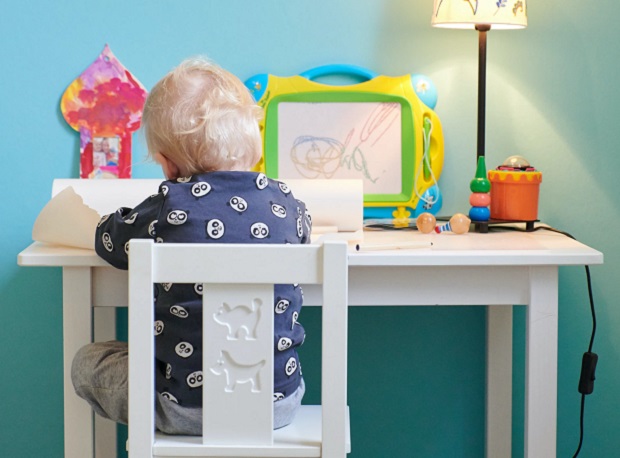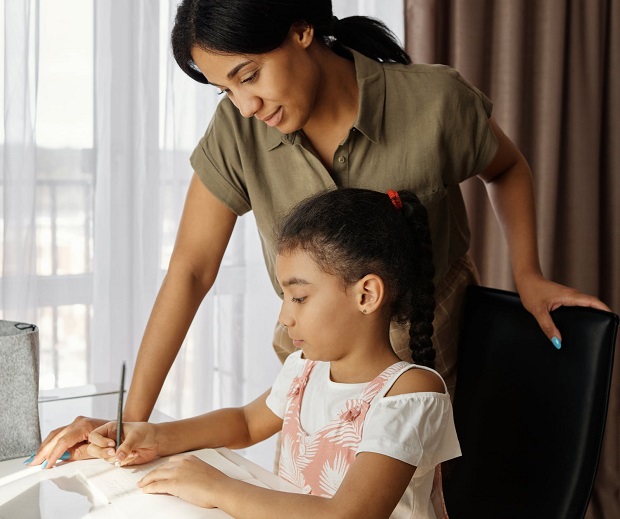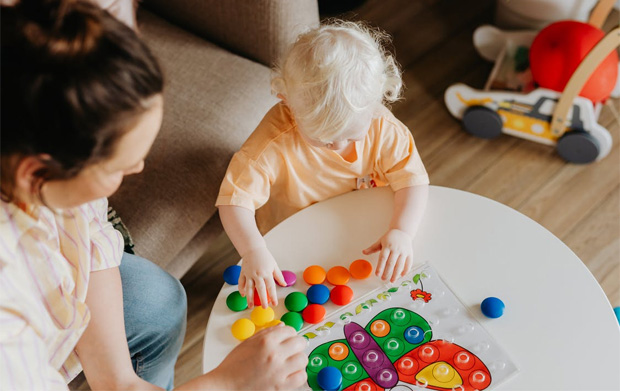How to Help Your Child to Develop Early Math Skills

How to Help Your Child to Develop Early Math Skills
When children go to school, they are given knowledge based on simple concepts. From an early age, a child must understand the principles of addition and subtraction in order to make learning easier. Any daily activities can be turned into a maths lesson that will be of interest to a small child. There are many simple techniques to introduce your child to the world of mathematics, given his daily activities. You may see here one of those learning ways. Using this Singaporean technique, you can teach your child in a playful way to understand shapes, sizes, master simple mathematical calculations, and so on.

Key Math Skills for Your Child Before School
Children need to understand basic maths to be ready for school. This is a solid foundation that will help the child to perceive the school curriculum more easily. There are points that you can show your child at an early age. Do it whenever possible: when you eat, go to bed, do the cleaning, go for a walk. Any process of everyday affairs can be turned into a simple instructive lesson.
Your child needs to understand:
- Number sense.
- Representation.
- Spatial sense.
- Problem-solving.
- Patterns.
- Measurement.
- Estimation.
It is important not to put pressure on the child because few of them like to feel forced to learn. Show a few lessons randomly, with an example. You are about to eat and the child can help you with the plates. Ask him to tell you about the amount of food on the plate, describe the ratio of half and third. Wash dishes together, count the number of clean plates and forks.

What Math Skills Can You Teach Your Child At Home?
Your child is ready to explore the world and it’s time to show them fundamental maths skills through simple games. Even cubes will help him learn geometric shapes. Tell him that the tower can be assembled from square cubes and put the triangular type on the very top. Show 3 or 4 cubes that are more stable than 7 or 8. Discuss the cubes, their shapes, colours and sizes. There are many things in your house that you can connect with maths examples.
- Count and sort.
- How much furniture is in the room?
- Where is our second cup?
- We are waiting for guests, we need additional dishes.
- What size is it?
- Walk it off.
- Picture time.
- Big on blocks.
- Pass it around.
- Shape up.
- Count the plates at dinner.
- Getting dressed, how many things did we wear?
- Long or short stick.
- Drawing, changing colors.
Any child prefers to play rather than learn. This is normal so you need to have more patience. Be prepared to teach your child about math on specific occasions and do it in batches. If to insert mathematical examples all the time, then the perception of information will be negative. This will lead to the fact that the child will not have the desire to learn even when he goes to school. It is best to spend some time in the afternoon or in the morning, in the evening the child is more tired and not likely to concentrate.

Solving Popular Problems in the Process of Learning Mathematics
Many parents think that their children are not good at maths whether they’re dealing with 4th grade math or high school maths or somewhere in between. But this is a false opinion – any child has these abilities. Success in school depends on the base that the child has learned and understood. Simple formulas and operations seem very complicated to him even after a few detailed explanations. This situation can be corrected but with more attention from the parents. There are several popular problems that any parent can see.
- Problem: The child does not like math.
Solution: children don’t like what they don’t understand. If you teach a child the basis of mathematics from early childhood, then he will not have an aversion to this lesson at school. Perhaps he will love drawing or history more. But mathematics will not be terrible for him.
- Problem: The child cannot calculate something in his mind.
Solution: it is difficult for him to imagine what he does not see and does not “feel”. Make the images visual (the number of apples, chocolates in the box, or buttons on his sweater.
- Problem: The child cannot learn the multiplication table.
Solution: it is impossible to learn, but you can use the technique of mental arithmetic. Many people do not know the multiplication table but can do any calculation.
- Problem: The child does not know how to solve problems.
Solution: you may have noticed that many of the children’s tasks are not written very clearly. Try to explain to the child the essence of the issue, perhaps he does not find a solution because he does not understand the meaning. Tell the question in plain language and you will see the result.
You will be able to succeed and show your child that maths can be fun and easy to understand. It is not scary and difficult if you understand the essence of the issue. There is always a solution, watch your child and try to find a way. Find him any things, topics or games to show the maths with a clear example.
The most popular reason why a child does not like maths is the wrong approach of parents. Usually these are screams, insults, reproaches. The child “hides in a shell”, mathematics is associated with a quarrel. Experienced experts advise entrusting training to professional teachers. You get tired at work; have everyday problems and activities with your child can be annoying. Professional teachers will be able to find an approach even to the most difficult child.

Conclusion
The best teachers for any child are their parents. They speak in a native voice, add a positive mood, they can pause to drink juice or play. Homeschooling for young children is less stressful than lessons with a teacher. Make time for your child and you will notice a positive change. Each of your lessons will give a good result, but it takes time and patience.
Collaboration.




